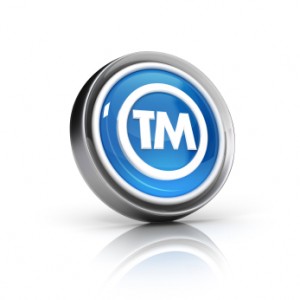A common question
Many of my clients ask me “should my business name be trademarked?” The real question here is does it make sense to apply for a Certificate of Registration to get federal trademark protection? The answer is a resounding “Yes!”
The trouble with “common law”
 In the United States, you can establish rights in a trademark simply by using it. This is known as “common law” trademark rights, BUT there are many disadvantages with mere common law trademark rights that could potentially put you out of business and/or could cost you a lot of money in the long run.
In the United States, you can establish rights in a trademark simply by using it. This is known as “common law” trademark rights, BUT there are many disadvantages with mere common law trademark rights that could potentially put you out of business and/or could cost you a lot of money in the long run.
First, if you are using a common law trademark in one part of the country it does not necessarily stop someone else from using the same trademark for the same products and services in another part of the country because common law trademark rights are territorial and the defense of “I never heard of your trademark because I live in a State 100 or 1000 miles away” is accepted by courts around the country. A federal Certificate of Trademark registration from the United States Patent and Trademark Office (PTO) prevents others from claiming the defense that they never heard of your trademark. With federal trademark protection this defense does not work because a Certificate of Registration from the PTO provides what the law calls “constructive notice” to the public of your ownership of the trademark.
First seen, first served
Second, simply using your trademark and never bothering to register it with the PTO does not stop someone else from applying for and registering the same or similar mark for the same or similar products and services with the PTO. That’s because the PTO only conducts searches of applications and registrations within its own database and does not look anywhere else. If someone registers a trademark with the PTO that is identical or confusingly similar to yours for the same or similar products or services and you don’t know about it, then they can get national trademark protection and could potentially turn around and prevent you from using your trademark in other parts of the country should you decide to expand your business. Don’t you want national protection for your trademark to prevent someone from doing this to your business?
The importance of a registration certificate
Third, having federal trademark protection means that under the law your registration certificate is automatic proof of your trademark rights. If you sue someone in federal court or to recover a confusingly similar domain name through the Uniform Dispute Resolution Procedure then proof of your federal trademark rights is much easier. If you only have common law trademark rights and need to sue someone for trademark infringement you will need to come up with all sorts of proofs to show that you were the first to use your trademark such as sales records, IRS returns, advertising expenses, articles of incorporation for your business, and a whole host of other evidence. This can be difficult and time consuming.
Fourth, if you tell someone to stop using a confusingly similar trademark as your federal trademark registered mark and they refuse to stop you may be able to get triple damages and attorneys’ fees for “willful infringement,” which means the third party has disregarded your warning and has refused to stop infringing on your trademark. You do not have this benefit with a common law trademark.
Using your trademark as loan collateral
Fifth, if your federal trademark is valued by an appraiser you may be able to use the federal trademark registration as collateral for loans because trademarks are intellectual property and the keyword here is “property.”
Finally, if you are selling products such as apparel or equipment, for example, and you are using an overseas manufacturer, your federal trademark registration may be recorded with the U.S. Customs Service to prevent counterfeit products from entering the market which if gone unnoticed by Customs could severely hurt your business and dilute brand. Customs maintains a database of only federally-registered trademarks and conducts investigations using that information to advise the trademark owner if a shipment of product appears to be infringing. You can’t record a common law trademark with Customs. With federal trademark rights and a properly recording of your federal trademark, Customs will hold up the shipment pending the trademark owners verification of whether the products are genuine.
There are many businesses that have been operating for decades and never bother to get a trademark, but when they discover that someone else has registered a domain name with their company name or is competing with them for the same customers using a confusingly similar trademark they suddenly wake up and realize they should have registered their trademark with the PTO long ago. Don’t let this happen to you. Consult an experienced trademark professional to apply for national trademark rights.
*The information contained in this article should not be construed as legal advice.





